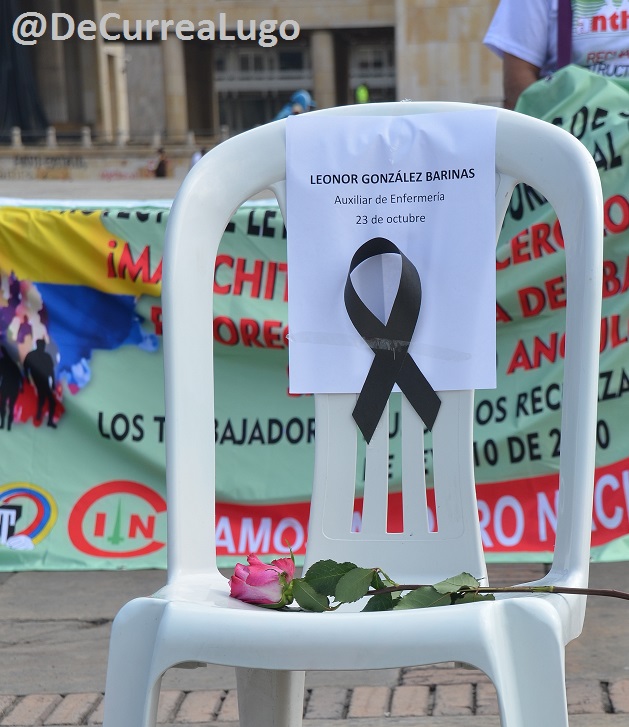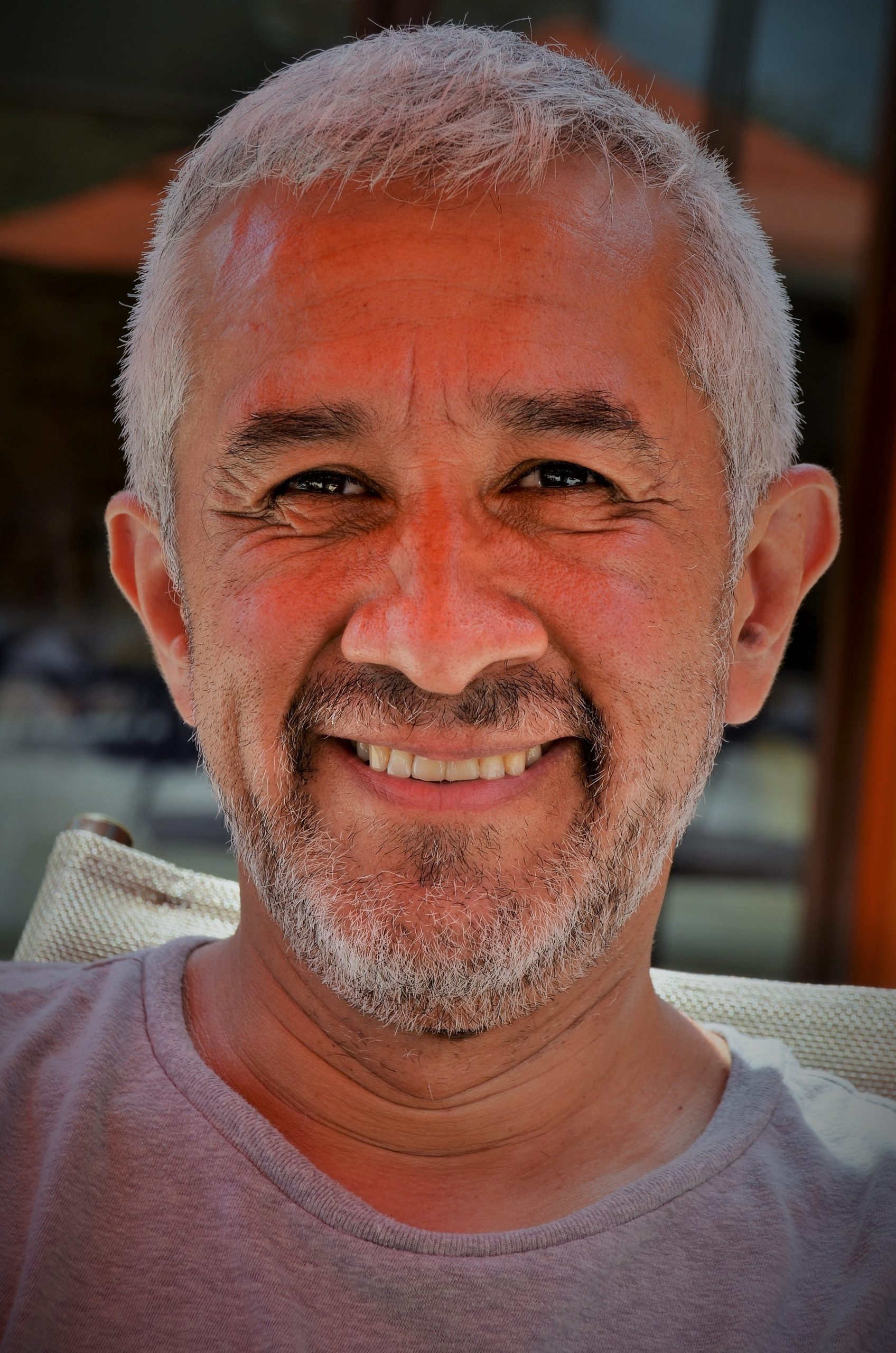Víctor de Currea-Lugo | 12 July, 2021
Written for: Plataforma Colombiana de Derechos Humanos, Democracia y Desarrollo (PCDHDD)
Executive Summary
The present report is an assessment of the measures from the Colombian government to guarantee the right to health during the first year of the COVID-19 pandemic. The report addresses challenges related to access to the health, working conditions, risk factors and structural problems associated with the country’s healthcare model. The document also lays out some final recommendations to the national government, healthcare personnel, human rights organizations, and civil society.
1. Access to care, worse during the pandemic
Prior to the pandemic, Colombia was already experiencing a deficit in access to health services. The preexisting crisis and poor management of state resources have meant that the effects on the health sector generated by the pandemic are profound and have an unequal impact on the population, with a clear socioeconomic bias. Almost 90% of pandemic deaths took place in groups belonging to the strata or socioeconomic levels 1, 2, and 3, and around 67% of the deceased were from strata 1 and 2.
In addition, the national government’s ill-advised decisions –for example, designating 17 trillion pesos (approximately USD $4,600,000,000) to the banks in the first month of crisis, before designating resources to hospitals– has shown that the government operates under the lens of saving and favoring financial capital, before protecting the peoples’ rights.
Given a lack of care and the violations to the right to health, the Colombian people have filed multiple tutelas (writs of protection of constitutional rights). The Office of the Human Rights Ombudsperson has documented that every 3.5 minutes a tutela is filed on access to health.
This is relevant as it demonstrates: a) the systematic nature of violations to the right to health; b) that the healthcare system does not even fulfill its own promises, as the immense majority of tutelas are related to treatments previously recognized in Law 100; c) that the state and, in particular the Ministry of Health, do not fulfill their roles in supervision and to guarantee the right to health; d) that there is an urgent need for a broad reform of the present system.
2. More precarious working conditions
During the pandemic, the three most noteworthy elements in relation to working conditions are: an increase in working hours, an increase in workload, and a decrease in pay. Additionally, health personnel were victims of discrimination from society, as they were considered to be agents of contagion.
These situations are just a limited sample of critical structural conditions, such as the following: over 43% of health personnel are indirect hires, that is to say, using third-party contracting, which allows for greater violations of their labor rights; a high percentage of the institutions did not provide personal protection equipment for staff; and the measures regarding an increased workload or decrease in wages were not adequately addressed. By early December 2020, more than 170 individuals from the healthcare sector had died from COVID-19.
3. Risk factors: Is prevention possible without drinking water?
It has been established that the right to health is intimately related to other rights, such as the right to food and the right to drinking water. Hence, the population’s nutritional challenges and limited access to drinking water must be seen as social determinants for health.
In Colombia, a series of protests, demonstrations, and street blockades were carried out by some impoverished sectors given the notable food shortages and loss of employment. Also, more than 2 million people do not have access to drinking water, which making it impossible to comply with general hygiene and sanitation measures, and the specific recommendation to wash hands frequently cannot be guaranteed.
4. The System, the problem
During the pandemic, myriad impacts were shown in terms of the right to health; for example, the terrible care granted to people held in prisons; the abandonment of migrants- in particular Venezuelans; the neglect of individuals being treated for chronic diseases; the notable reduction in patients who suffer from other diseases; and delays in supplying medicine to chronic patients.
The right to health cannot be seen as state charity, and much less reduced to the market logic of services, which was established in the country based on the healthcare model laid out in Law 100 of 1993. In practice this law has signified a handing over of healthcare to private capital, where it is handled as a good and the state has progressively abandoned its regulatory role.
The (almost) inevitable effects or consequences are the rejection of patients, a limitation of medical procedures and supplies, the creation of requirements that go beyond what is established by law, an increase in the number of patients seen per hour per doctor, the persecution of health sector unions, the major deflection of the healthcare system’s efforts towards administrative tasks, and short-term employment. And worse yet, all of this was uncovered amid a pandemic.
5. The proposal: Recover the role of the state
Since Law 100 was passed in 1993, it has been observed that administrative acrobatics and wage cuts are insufficient to guarantee a dignified survival of the health system. The state must recover its regulatory role for healthcare services.
Some essential elements that must be transformed to truly guarantee the right to health in Colombia, are: 1) Equity in healthcare services; 2) Universal and comprehensive services; 3) Control and regulation of transnational pharmaceutical companies; 4) Public healthcare institutions must be the backbone of the national healthcare system; 5) The price of medicine must be, without exception, determined by the national government, for wholesalers and retailers.
6. Epilogue: Playing Monopoly with healthcare
The healthcare model in Colombia is a copy of the ISAPRE model (Healthcare Provider Companies or EPS for its Spanish acronym in Colombia) established by Chilean dictator Augusto Pinochet, who applied the World Bank recommendation that healthcare must be profitable.
The model works in the following way: there is an intermediary who charges the system’s users (turned clients) and contracts entities to provide services (hospitals). The business model established with these rules is simple: private intermediaries seek to reduce the services granted to clients and to reduce care costs from health institutions, hence generating a profit.
The state is responsible for unprofitable tasks. This system, with its market rules, is similar to the boardgame Monopoly. The rules of the game mean that it is impossible to act in solidarity and these rules do not seek to distribute wealth or benefit the players, but instead they establish that some win and others lose.
Recommendations
– To the Colombian state:
Recognize its lead role as a guarantor for the right to health, including the interdependent rights to food and drinking water; increase the budget for health and guarantee its correct use, especially in vulnerable areas and those with limited resources, as they are the most affected by COVID-19; review policies on access to drinking water to allow for measures that prevent diseases.
– To human rights organizations:
Contribute to the promotion and guarantee of the right to health, in terms of access, availability of services, quality and acceptability; document and make public the consequences of the healthcare model in the pandemic; carry out a national campaign based on the negative consequences of the current healthcare model.
– To health personnel:
Work for unity among healthcare personnel, making it possible to defend dignified working conditions and, in general, the right to health; promote wage and gender equality among those who work in the health sector; based on your experience, contribute to the formulation of models that are alternatives to the current Colombian healthcare model.
– To the Colombian society:
Maintain media and social pressure to end Law 100; support policies and bills to move towards regulations that provide a true protection for people’s health and working conditions for healthcare personnel; join observatories on the right to health and, based on your experience, contribute to the formulation of models that are alternatives to the current Colombian healthcare model.
You can read the full report here: RIGHT TO HEALTH AND PANDEMIC
Versión en español disponible en: El derecho a la salud y la pandemia en Colombia (informe)










